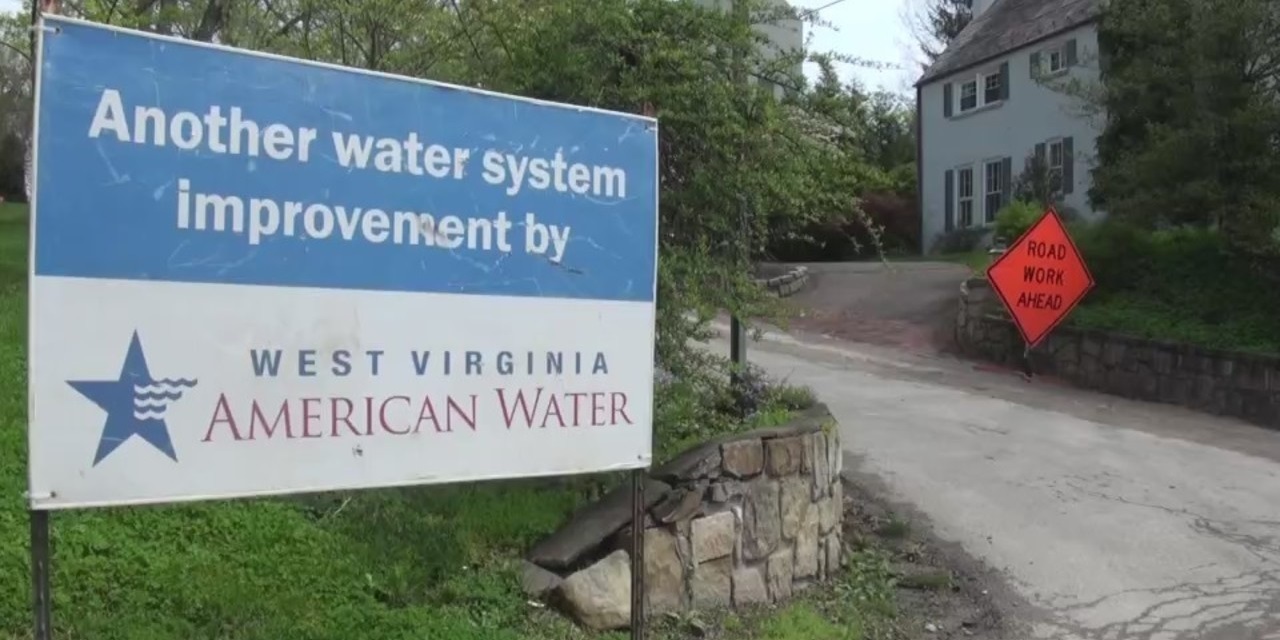CHARLESTON – A joint settlement worth up to $18 million has been reached in a class action lawsuit regarding a 2015 water main break in Dunbar.
The parties issued a joint statement May 5 regarding the case styled Jeffries v. West Virginia-American Water Company, which was filed in 2017.
The proposed settlement agreement, which was filed May 2, was given preliminary approval May 5 by Kanawha Circuit Judge Carrie Webster.
“The parties believe the proposed settlement to be an appropriate resolution to many years of litigation and recognize that, if approved by the court, the proposed negotiated settlement would resolve all pending litigation related to the matter and provide a claims process for affected customers to receive compensation,” the parties’ joint statement says. “As part of the proposed agreement, West Virginia-American Water Company does not admit liability related to the subject main break.
“If approved by the court, the settlement will result in funds being made available to pay claims of class members who were affected by the main break and submit valid claim forms through the process.”
Notice will be issued to class members advising of the specific terms and the process by which claims will be reviewed and paid.
The settlement provides for two types of claims for class members. One is a simple claim, and the other is a claim with evidence. Only one claim per household or business can be made.
WVAWC will pay up to $18 million, and up to $13 million of them will be for the simple claims. The individual simple claim amount will be $175 per household, and it will be $525 per business.
If a household has proof such as emails, text messages and social media posts showing an impact from the event, it can recover $225. Claims with receipts for additional expenses showing lost profits or additional expenses directly related to the event can receive up to $500 per household and $1,525 per business
If the simple claims plus attorney fees and costs exceed the $13 million, the claims amount will be reduced proportionally. If all of the claims exceed $18 million, the claims with evidence also will be reduced proportionally.
In the original complaint, the plaintiffs say they suffered following a “preventable and foreseeable” loss of water service by a leak in Dunbar on June 23, 2015.
Initial repair attempts were unsuccessful, and repair efforts created other issues. Regular service was not restored until June 27, 2015. Then, another issue on June 29 created more problems for thousands of the same customers. Regular service was not restored again until July 1.
This interruption of service occurred in what the water company calls the western Kanawha Valley District and affected a total of about 120,000 residents and businesses in Kanawha and Putnam counties.
“The western portion of the Kanawha Valley District is entirely dependent on a single large-diameter 36-inch prestressed concrete cylinder pipe (PCCP) which is known to be unreliable and prone to breaks,” court documents state. “Indeed, dating back as far as 1989, this main broke repeatedly, approximately every 3-4 years.”
In July 2022, Webster issued an order granting the class certification to the case originally filed in 2017. Webster previously had granted class status in the case, but that decision was taken to the state Supreme Court to make sure it followed the guidelines for class certification set by a 2020 state Supreme Court ruling that slightly changed how class certifications are made.
Court filings show the claims administrator will start mailing and publishing notices May 26 and will finish doing so June 23. The deadline for class members to opt out or object to the settlement is July 23, and the deadline for class members to file claims is August 22. The order is scheduled to be filed September 4, and the final fairness hearing is scheduled for September 11.
The class will be defined as all WVAWC customers, residents and businesses located within the boundaries of the service area served by the 36-inch water main that broke, but excluding any WVAWC employees or its affiliates, judicial officers and immediate family members and associated court staff assigned to the case, class counsel and attorneys who have made an appearance for the defendants in the case and those who exclude themselves from the class via opt outs.
The class is represented by L. Dante diTrapano and Alex McLaughlin of Calwell Luce diTrapano in Charleston, Van Bunch of Bonnett Fairbourn Friedman & Balint in Phoenix and W. Jesse Forbes of Forbes Law Offices in Charleston. WVAWC is being represented by Tom Hurney, Alexandra Kitts, Albert Sebok and Blair Wessels of Jackson Kelly in Charleston and by Kent Mayo of Baker Botts in Washington, D.C.
Further information about the settlement can be found at www.dunbarmainbreak.com.
Kanawha Circuit Court case number 17-C-765
